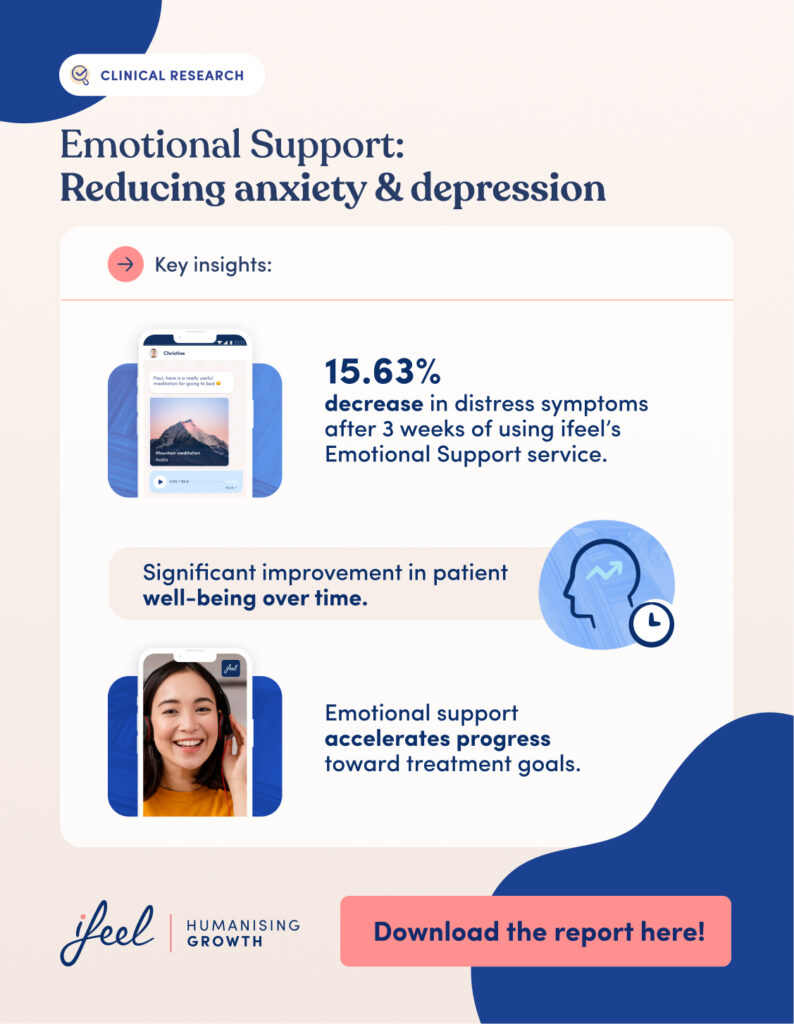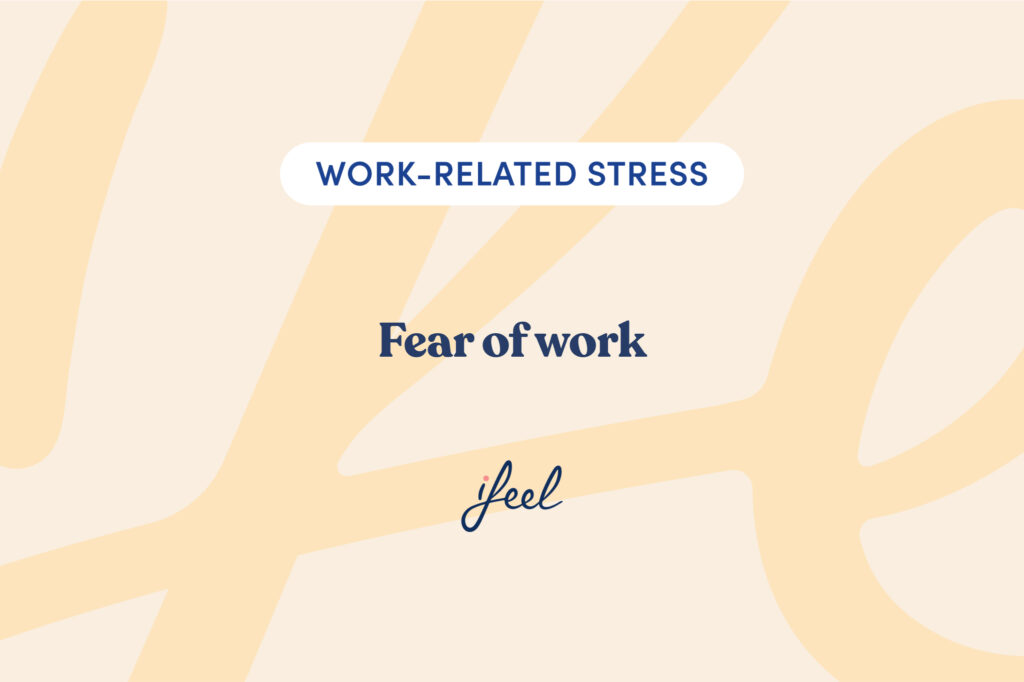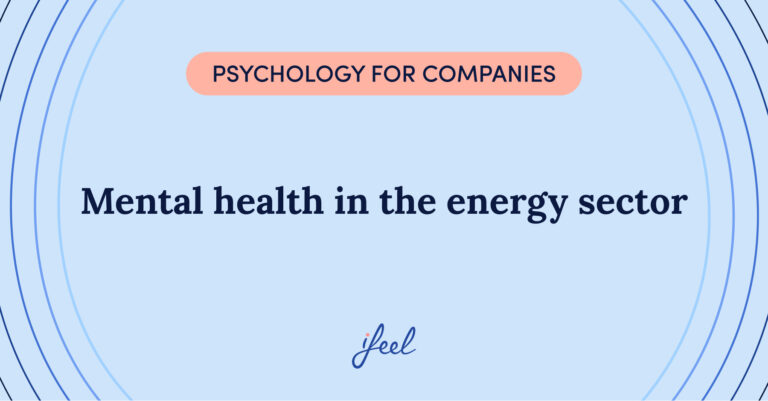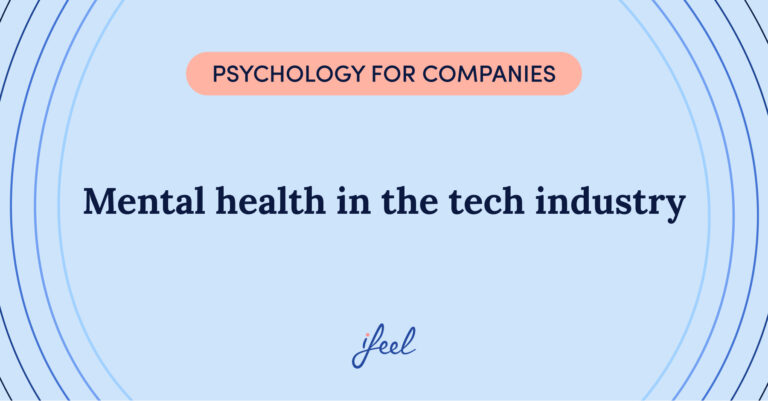Fear of work, also known as ergophobia, is an increasingly common occurrence in the modern workplace. This anxiety disorder is characterised by an irrational and persistent fear of work or work-related activities, which can significantly affect the quality of life and professional performance of those who suffer from it.
In the workplace, the consequences of this fear go beyond personal discomfort, as fear of work can directly impact productivity and the employee’s commitment. Workers who experience ergofobia often face a significant decrease in their performance, which translates into lower efficiency and quality in their work.
Furthermore, this disorder can lead to increased absenteeism, as those affected may feel unable to face their work environment, resulting in frequent or prolonged absences. And, in a world where employee mental health has become a priority for many organisations, leaders must understand the causes, symptoms and strategies to address work anxiety effectively.
The reality of work anxiety in the 21st century
In recent years, especially in the wake of the pandemic, we have witnessed an increase in cases of anxiety at work and fear of work. The sudden shift to remote working, followed by a gradual return to the office, not to mention the emergence of new technologies, has created new challenges for workers’ mental health.
In fact, it is estimated that every year 12 billion working days are lost due to depression and anxiety, representing a cost of almost one trillion dollars to the global economy.
Fear of work is not limited to simply disliking the work environment; it represents an intense fear that can manifest itself in various ways. Symptoms can include severe anxiety, panic attacks, excessive sweating, increased heart rate and difficulty breathing when thinking about going to work or being in the work environment.
This fear can be so intense that it leads some individuals to completely avoid work-related situations, which can seriously affect their personal and professional lives.

Common causes of fear of work
Fear of work can have multiple origins, and is often the result of a combination of factors. Some of the most common causes include:
- Traumatic experiences at work: Situations of workplace bullying, conflicts with superiors or colleagues, or significant professional failures can trigger an intense fear of the work environment.
- Chronic stress: Prolonged exposure to high levels of stress at work can lead to the development of anxiety and work phobias.
- Perfectionism and excessive self-demanding: People with extremely high standards for themselves can develop a fear of failure that manifests itself as ergophobia.
- Organisational changes: Restructuring, mergers or drastic changes in the enterprise’s culture can generate uncertainty and anxiety in employees.
Virginia Grenón Lobato, Global Head of Human Resources Operations at Cabify, an ifeel partner company, emphasises the importance of creating an environment of trust at work:
‘Our value ‘We trust in trust’ is based on several fundamental pillars. At the top, leaders do everything possible to provide an environment of support, trust and professional development, offering constructive feedback and opportunities for growth.’
Consequences of fear of work for organisations
Ergophobia, or fear of work, not only affects the individuals who suffer from it, but also has significant repercussions for enterprises. These consequences can negatively impact various aspects of organisational functioning, from productivity to work culture, such as:
1. Decreased productivity
When employees experience fear of work, their ability to concentrate and perform tasks efficiently is compromised. This can result in a notable decrease in individual productivity and, by extension, in the overall productivity of the enterprise. Projects can be delayed, the quality of work can decrease and objectives may not be met within the established deadlines.
2. Increased absenteeism
One of the most obvious manifestations of ergofobia is an increase in absenteeism. Employees who suffer from fear of work may resort to frequent or prolonged absences as an avoidance mechanism.
This not only affects the continuity of work processes, but can also generate overload in other team members, which in turn can cause a domino effect of stress and exhaustion.
3. Deterioration of the work environment
One or more employees’ fear of work can have a contagious effect on the work environment, as anxiety and stress can spread, creating a climate of tension and negativity that affects even those who did not initially experience these problems. This can result in an overall decrease in morale and job satisfaction throughout the organisation.
4. Increased staff turnover and switching off at work
Enterprises that do not adequately address ergophobia and other mental health issues may experience an increase in staff turnover. Employees suffering from fear of work may seek opportunities elsewhere, resulting in the loss of valuable talent and additional costs associated with hiring and training new employees.
In addition, phenomena such as ‘quiet quitting or silent resignation’ or ‘quiet vacationing’ become more common. In this scenario, employees, although physically present, disconnect emotionally from their work, only fulfilling the minimum requirements of their position without getting further involved. This switch off can be a subtle manifestation of ergophobia, where employees seek to minimise their exposure to work-related stress without formally resigning.
5. Impact on innovation and creativity
The fear and anxiety associated with ergophobia can inhibit employees’ ability to think creatively and generate innovative ideas. In an environment where fear prevails, workers are less likely to feel comfortable taking risks or proposing novel solutions, which can limit the enterprise’s ability to adapt and grow in a competitive market.
6. Additional health and well-being costs
Enterprises may face additional costs related to employee health and well-being. This can include expenses for employee assistance programmes, therapies, and potentially, higher costs for health insurance. In addition,
improper management of ergophobia can lead to legal problems if employees feel that their mental health needs are not being adequately addressed in the workplace.
The impact of ergophobia on organisations is multifaceted and can have far-reaching consequences if not proactively addressed. Enterprises that recognise the importance of their employees’ mental health and take steps to create a healthy and supportive work environment are better positioned to mitigate these risks and foster a more productive and satisfying work environment for all.
‘At Thoughtworks we start from the basis that we must first listen to our collaborators. All the changes implemented by the People team are based on knowing what people need.’
Javier Sordo Gómez, Head of People at Thoughtworks, an ifeel partner company.
The impact of fear of work on employees’ mental health
Fear of work can significantly impact the mental health and general well-being of employees. Some of the most notable effects include:
| Impact | Description |
|---|---|
| Deterioration of work performance | Constant fear affects concentration, decision-making, and overall employee productivity. |
| Social isolation | People with ergophobia tend to avoid interactions with colleagues, leading to feelings of loneliness and switching off at work. |
| Physical health problems | The chronic anxiety associated with ergophobia can manifest itself in physical symptoms such as headaches, digestive problems, and sleep disorders. |
| Development of other mental disorders | If left untreated, ergophobia can lead to depression, generalized anxiety disorders, or other mental health problems. |
The Leadership Lens🔎
As a leader, it is crucial to recognise and address the fear of work that your employees may experience. This fear, often fuelled by job insecurity or fear of failure, can undermine morale and reduce productivity.
Fostering an environment of trust and open communication is essential to mitigate these feelings. Leaders should promote ongoing dialogue, offering constructive feedback and ensuring that employees feel valued and understood. Committing to a culture of empathy and support not only increases the well-being of the team, but also enhances the overall performance of the organisation.
The role of the enterprise in the prevention and management of ergofobia
Organisations play a crucial role in creating a work environment that prevents the development of fear of work and supports employees who suffer from it.
However, addressing this problem requires a multifaceted approach that involves both employees and the organisation. Below are effective strategies and measures that enterprises can implement:
1. Encourage open communication
Creating communication channels where employees can express their concerns without fear of reprisal is essential. This can help identify problems early and address them before they become phobias.
2. Implement mental well-being solutions
Offering access to mental health resources, such as therapy and stress management programmes, can be invaluable for employees struggling with fear of the workplace. This can include establishing clear mental health policies that specifically address employee well-being.
3. Promote a healthy work-life balance
Establish policies that encourage employees to switch off their devices outside of working hours and respect their personal time. Flexible working, such as offering flexible or remote working options, can help reduce the anxiety associated with the traditional office environment.
4. Training in emotional intelligence for leaders
Equipping managers with skills to recognise and address mental health issues in their teams can create a more supportive and understanding work environment. This includes providing mental health training to all employees on how to recognise and manage stress and anxiety at work.
Download our handbook of emotional intelligence for leaders and discover how this valuable tool can transform your leadership and benefit your entire organisation.
5. Mentoring programmes
Implementing peer support systems can provide employees with an additional safety net. These programmes can help create a sense of community and mutual support within the organisation.
6. Regular workplace environment assessments
Conduct regular surveys and psychosocial risk assessments to identify factors that may contribute to the development of ergophobia and other forms of work-related stress.
Download our template on Psychosocial Risk Factors to prevent mental health problems at work. This will help you identify and efficiently address these risks, promoting the well-being of your employees and the productivity of your enterprise. Download the template now and improve your work environment!
7. Non-discrimination and support policies:
Ensure that there are clear policies against discrimination based on mental health problems and that active support is offered to employees who seek help.
Download our Guide to Integrating the DEIB Strategy into your Corporate Culture and provide your enterprise with key tools to promote diversity, equity, inclusion and belonging! Prioritise an inclusive and strengthened business culture with just one click.
8. Encourage physical activity and well-being
Implementing programmes that promote physical activity, meditation or mindfulness in the workplace can help reduce stress and improve overall well-being.
9. Review and adjust workload:
Regularly evaluate the distribution of tasks and responsibilities to ensure that they are reasonable and do not contribute to excessive levels of stress.
10. Create workspaces that encourage switching off
Design areas in the workplace where employees can relax and disconnect briefly during the working day.
By implementing these strategies, enterprises not only address ergofobia, but also create a healthier and more productive work environment for all employees.
Mental health at work, one of the biggest challenges facing organisations today
At ifeel, we know that the relationship between mental health and business success is undeniable. The mental health of employees is an essential component for business success. Enterprises that invest in the well-being of their employees not only create a healthier work environment, but also reap tangible benefits in terms of productivity and commitment.
To help in this process, ifeel has developed an annual planner for enterprises, which offers a guide to strategies that will help you promote health and productivity throughout the year in your organisation. Download it for free!
In addition, our clinical team provides leading companies in their sector with a dynamic, scalable and fully personalised solution, powered by AI. We have a strategy and approach based on key data to help organisations with a global presence address one of the biggest business challenges of our time: mental health at work.
This solution offers employees a mental health care service structured at different levels depending on their needs at any given time. Discover our Resources section where you will find different materials, such as webinars, podcasts, guides for human resources on current topics and interviews with leaders of large organisations.
Data-driven methodology
Our mental health solution for enterprises employs evidence-based practices and innovative methods, backed by the latest research and a network of over 600 mental health professionals. Would you like to know more about our Clinical Research Department? Don’t forget to visit this section to stay informed about the latest studies and research in mental health in corporate environments.
We hope you found this article on the fear of work interesting.
If you would like more information about the ROI of our personalised mental health solution for enterprises, simply request it here and our team will make a calculation adapted to the specific characteristics of your enterprise.











